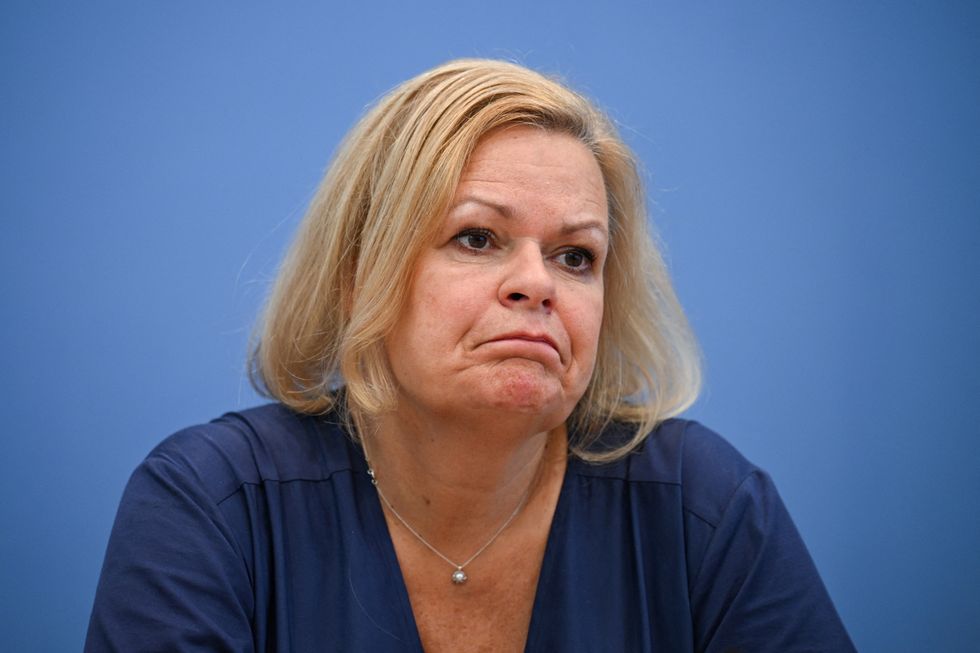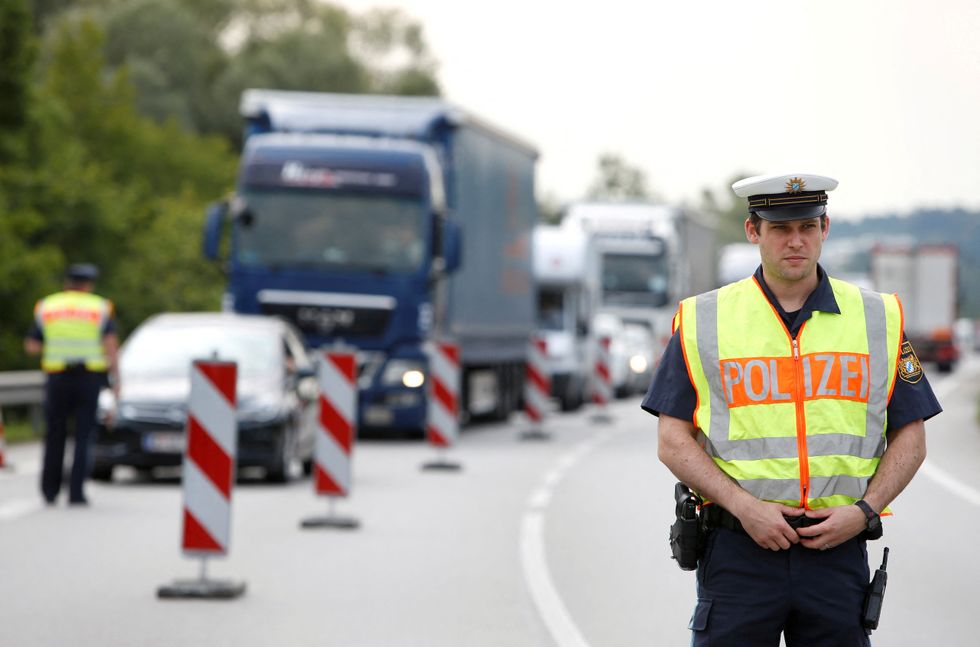The Schengen allows the free movement of people between 29 European countries
Reuters
Neighbouring countries have criticised Germany's move to extend border controls
Don't Miss
Most Read
Trending on GB News
Germany is implementing tighter border controls in the European Schengen zone dealing a blow to Europe's free movement zone and testing EU unity.
On Monday, Berlin said it would extend controls already in place at its border with Austria, Poland, the Czech Republic and Switzerland to France, Luxembourg, Belgium, the Netherlands and Denmark next week.
The move would "further reduce irregular migration" and "protect against the acute dangers posed by Islamist terrorism and serious crime," Nancy Faeser, the interior minister said.
The move is the first step by a leading EU nation to push back on the so-called Schengen agreement which sees free movement between nations.
Concerns about immigration have been pushed to the forefront of German politics following recent deadly knife attacks where the suspects were asylum seekers.
 German Interior Minister Nancy Faeser said measures announced last year have allowed Germany to return 30,000 migrants to Austria Reuters
German Interior Minister Nancy Faeser said measures announced last year have allowed Germany to return 30,000 migrants to Austria ReutersThe Islamic State group claimed responsibility for a knife attack that killed three people in the western city of Solingen last month.
The government has also been facing pressure to respond to concerns over migration as support for the right-wing party, the AfD has increased and the party won its first state election in the eastern state of Thuringia earlier this month.
The minister also explained that the government is designing a scheme allowing authorities to reject more migrants directly at German borders.
Germany's position in the EU and its status as the bloc's largest economy mean the new measures could impact the country's relationship with its neighbouring countries.
Europe's passport-free Schengen area was created in 1985 and included 25 of the 27 EU member states plus four others including Switzerland and Norway.
It effectively allows free movement between all these countries without border controls.
Under EU rules, countries in the Schengen area, are only allowed to introduce border checks as a last resort to avert threats of national security or public policy.
However, increasingly European governments have been reimposing checks without any specific threats such as terror attacks.
Alongside Germany, Schengen members who currently impose controls on borders include Austria, which cites Ukraine-related security threats and asylum pressure to check arrivals from Slovakia, the Czech Republic, Slovenia and Hungary.
Denmark also imposed controls citing terror threats related to the war in Gaza and Russian espionage risks and France is checking Schengen zone arrivals on the grounds of increased terrorist threats.
Italy, Norway, Sweden, Slovenia and Finland are operating checks due to the wars in Ukraine and the Middle East and increased migration flows and organised crime in the Balkans.
The European Commission has generally accepted member states' justifications for imposing border checks and is expected to do the same for Germany.
But in terms of the European dream of freedom of movement - this move is the first death knell for the system.
 Austria's Interior Minister said his country would not be taking any migrants turned away by Germany at the borderReuters
Austria's Interior Minister said his country would not be taking any migrants turned away by Germany at the borderReutersLATEST FROM MEMBERSHIP:
- How Tories could consign themselves to electoral oblivion -paving the way for Reform - Kwasi Kwarteng
- How MP brilliantly shamed Labour in illegal immigration debate - 'Since 1971 its been a criminal offence for a non British citizen to enter the UK without leave'
- Get FIVE free entries to the Great British Giveaway when you become a GBN member in September
Elsewhere, however Germany's decision has been hit with criticism with the Polish Prime Minister Donald Tusk denouncing it as “unacceptable” to extend its border controls.
Tusk said there was no doubt the measures were triggered by "the internal German political situation... and not our policy towards illegal migration at our borders".
He is one of several figures from neighbouring countries to criticise the move as the head of a Dutch-German alliance of border communities said it was a “panic reaction” and Austria’s minister insisted it would not take in anyone turned away from Germany.
Gerald Knaus, the chair of the European Stability Initiative think tank, also questioned the measure saying on X: “Internal border controls that are intended to have any effect mean the end of Schengen.”
But some leaders on the right in the Netherlands took a different view as Geert Wilders, leader of the Freedom Party asked: “If Germany can do it, why can't we?”
Dilan Yesilgöz of the centre-right liberal VVD was also supportive of the “super interesting” plan saying it sent a message that the government wanted control.







